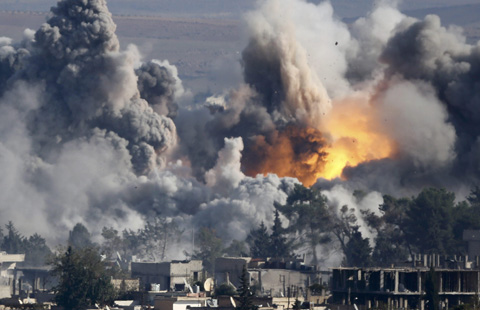Obama elevates climate-change issue
By CHEN WEIHUA in Washington (China Daily USA) Updated: 2015-01-21 15:32Obama said he will veto any additional sanctions on Iran as the administration seeks to finalize a nuclear deal with the country.
"There are no guarantees that negotiations will succeed, and I keep all options on the table to prevent a nuclear Iran," he said.
"But new sanctions passed by this Congress, at this moment in time, will all but guarantee that diplomacy fails — alienating America from its allies and ensuring that Iran starts up its nuclear program again. It doesn't make sense."
Obama also defended his recent decision to normalize diplomatic relations with Cuba. "Our shift in Cuba policy has the potential to end a legacy of mistrust in our hemisphere; removes a phony excuse for restrictions in Cuba," he said.
"And this year, Congress should begin the work of ending the embargo," he said.
Like in previous State of the Union addresses, Obama singled out China several times.
Speaking about boosting US exports, Obama said that China wants to write the rules for the world's fastest-growing region. "That would put our workers and businesses at a disadvantage. Why would we let that happen? We should write those rules. We should level the playing field," Obama said.
"That's why I'm asking both parties to give me trade promotion authority to protect American workers, with strong new trade deals from Asia to Europe that aren't just free, but fair."
Jon Taylor, a professor of political science at the University of St Thomas, said it "sounds full of hubris (some would say hegemonic) and protectionist to me."
The Obama administration has long called for the Republican-controlled Congress to grant it Trade Promotion Authority (TPA) so it can negotiate more confidently and effectively with 11 other members of the Trans-Pacific Partnership (TPP).
 China's big train makers reunite in quest for overseas business
China's big train makers reunite in quest for overseas business
China's big train makers reunite in quest for overseas business





